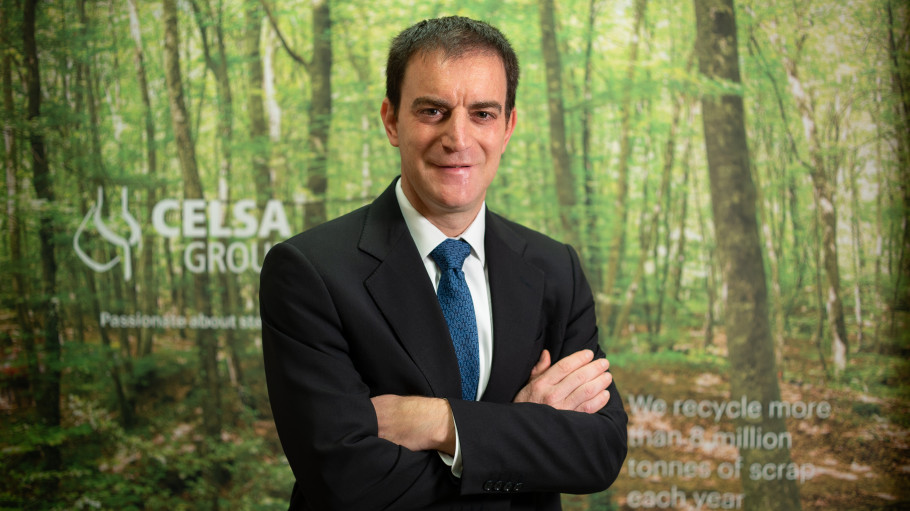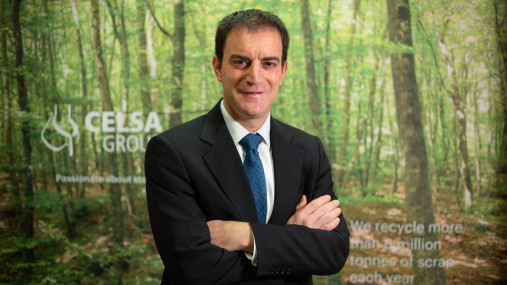
Press releases » Francesc Rubiralta Rubio new EUROFER President
Francesc Rubiralta Rubio new EUROFER President
Downloads and links
Recent updates

Brussels, 17 November 2022 – The Board of the European Steel Association (EUROFER) has elected Francesc Rubiralta Rubio as President of the organisation. He follows Geert Van Poelvoorde, who has led EUROFER since 2015.
Mr. Rubiralta Rubio is Chairman and CEO of CELSA Group, responsibilities he assumed in 2010 when he succeeded his father and founder of CELSA Francesc Rubiralta Vilaseca. In that same year, Mr. Rubiralta Rubio was appointed Vice-President of the European Steel Association.
Speaking after his election, Mr. Rubiralta Rubio said: “I am honoured to take over from Geert Van Poelvoorde, who guided us safely through a challenging period. These challenges are still ongoing in these unprecedented times: the energy crisis, the completion of the transition to green steel and new dramatic surges of steel imports are to be tackled. As Vice-President of EUROFER, I have learnt that the strength of the European steel industry lies in its diversity and its ability to speak with one voice. This will also lead my work as President. I thank you all for your trust and I count on your cooperation. Together, we are stronger”.
Mr. Van Poelvoorde served as President of the European Steel Association from November 2015 to November 2022. He is a member of the Group management committee of ArcelorMittal and CEO ArcelorMittal Europe.
“It was a privilege to represent EUROFER in these difficult times. During my mandate, I helped EUROFER to consolidate its position as the main interlocutor on steel-related issues on the European stage. I thank everybody for the excellent cooperation throughout the years, and I wish the best of luck to Francesc in his new role”, said Mr. Van Poelvoorde.
“Mr. Van Poelvoorde served for seven years as President of the European Steel Association, totalling a record four-terms. He ensured much-needed continuity in the last years, steering the whole sector through market-distortive steel import surges, the pandemic and driving it towards a successful transition to carbon-neutral steel. Mr. Rubiralta Rubio will continue this successful leadership, having been a very active member of the Board for 12 years. At the same time, he will bring further momentum for accomplishing the ‘green steel revolution’, ensuring access to affordable, low-carbon energy and steel scrap - which is essential for the industry’s decarbonisation - while preserving the strategic autonomy of our sector, as we are now struggling with unbearable energy costs and new, massive import surges from third countries”, said Axel Eggert, Director General of EUROFER.
Contact
Lucia Sali, Spokesperson and Head of Communications, +32 2 738 79 35, (l.sali@eurofer.eu)
About the European Steel Association (EUROFER)
EUROFER AISBL is located in Brussels and was founded in 1976. It represents the entirety of steel production in the European Union. EUROFER members are steel companies and national steel federations throughout the EU. The major steel companies and national steel federation of Turkey and the United Kingdom are associate members.
The European Steel Association is recorded in the EU transparency register: 93038071152-83.
About the European steel industry
The European steel industry is a world leader in innovation and environmental sustainability. It has a turnover of around €125 billion and directly employs around 310,000 highly-skilled people, producing on average 153 million tonnes of steel per year. More than 500 steel production sites across 22 EU Member States provide direct and indirect employment to millions more European citizens. Closely integrated with Europe’s manufacturing and construction industries, steel is the backbone for development, growth and employment in Europe.
Steel is the most versatile industrial material in the world. The thousands of different grades and types of steel developed by the industry make the modern world possible. Steel is 100% recyclable and therefore is a fundamental part of the circular economy. As a basic engineering material, steel is also an essential factor in the development and deployment of innovative, CO2-mitigating technologies, improving resource efficiency and fostering sustainable development in Europe.

Joint Industry Statement
Brussels, 11 February 2026 - The European Steel Association (EUROFER) has backed a call to action adopted by European companies and industries in Antwerp today, which includes a demand on the EU to take urgent action to bring electricity prices down as a condition for Europe’s industrial drive, competitiveness and economic resilience.
The automotive value chain is of vital importance to the EU steel industry and requires an integrated approach to realising the decarbonisation transition in a pragmatic way.